For any enterprise building on the Microsoft stack, Azure Speech Services is the default choice for voice AI. It’s secure, compliant, highly scalable, and integrates seamlessly with the entire Azure ecosystem. It is a testament to enterprise-grade engineering, a powerful and reliable generalist that can handle a vast range of speech-related tasks, from transcription to translation.
But in the cutthroat world of AI development, the “default” choice is not always the winning choice. While Azure provides a robust suite of tools, the market is now filled with specialized providers that are pushing the boundaries of what’s possible in specific areas like real-time speed, raw accuracy, and deep audio intelligence. For developers and businesses looking to build a truly market-leading product, a “good enough” generalist may no longer be enough.
This is why the search for powerful Azure Speech Services alternatives is becoming a critical strategic move for forward-thinking companies. This guide will provide an in-depth review of the top platforms that compete with and often outperform Azure in key areas, and we will uncover the foundational technology that is essential for building a next-generation voice product.
Table of contents
Why Look Beyond the Microsoft Ecosystem?
Choosing to look beyond a native cloud service is a significant decision. The search for Azure Speech Services alternatives is typically driven by a need for specialized capabilities that can provide a decisive competitive advantage.
- The Pursuit of Real-Time Speed: For conversational AI, every millisecond of latency matters. While Azure’s streaming API is functional, it wasn’t purpose-built with the obsessive focus on speed that real-time specialists have. A lower latency means a more natural, fluid conversation and a better user experience.
- The Demand for Superior Accuracy on Niche Data: Azure’s models are trained on massive datasets, but a general model can struggle with industry-specific jargon, unique accents, or noisy environments. Competitors often offer more accessible and powerful tools for custom model training, leading to a significant reduction in Word Error Rate (WER).
- The Need for Integrated “Audio Intelligence”: To get deep insights like summarization or sentiment analysis from an Azure transcript, you typically need to use another service like Azure AI Language. Several alternatives bundle these rich analytical features directly into their speech platform, simplifying the workflow and providing more value from a single API call.
- A Multi-Cloud or Best-of-Breed Strategy: Many modern enterprises are actively avoiding vendor lock-in by adopting a multi-cloud strategy. This involves choosing the absolute best tool for each job, regardless of which cloud provider it comes from, creating a more resilient and powerful tech stack.
A world-class AI deserves a world-class delivery system. FreJun AI provides that foundation.
Also Read: How To Deploy AI Voicebots On Existing SIP Trunks?
Top 5 Azure Speech Services Alternatives (Ranked & Reviewed)
Here is a detailed analysis of the leading platforms that offer compelling advantages over Azure’s services for specific use cases.
| Platform | Best For | Key Differentiator | Ideal User |
| Deepgram | Real-time conversational AI. | The industry leader in speed and low-latency streaming. | Developers building voice bots and live assistants. |
| AssemblyAI | Advanced “Audio Intelligence” features. | A rich suite of models for summarization, sentiment analysis, etc. | Developers needing deep insights from audio data. |
| OpenAI Whisper | Raw accuracy on diverse audio. | A benchmark-setting model for transcribing noisy or complex files. | Teams needing the highest quality on recorded audio. |
| Google Cloud | Global scale and language support. | A direct cloud competitor with superior language coverage. | Enterprises with a global user base or multi-cloud strategy. |
| ElevenLabs | Best-in-class Text-to-Speech (TTS). | Unmatched voice quality, emotional realism, and cloning. | Teams needing a superior voice for their AI agent. |
Deepgram
Deepgram has built its entire brand around being the fastest STT provider for real-time streaming audio. For any application involving a live, back-and-forth conversation, it is one of the most powerful Azure Speech Services alternatives.
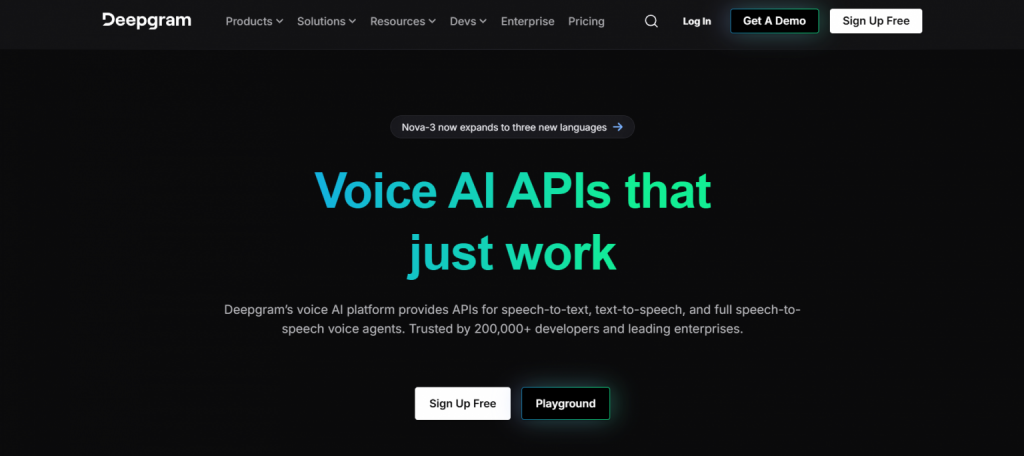
Key Features & Strengths
- Purpose-Built for Speed: Unlike a generalist cloud service, Deepgram’s architecture is obsessively optimized for low-latency streaming, enabling more natural conversational turn-taking.
- Superior Customization: Offers robust and accessible tools for training custom models on your own data, allowing you to achieve very high accuracy on specific vocabularies.
- Conversational AI Toolkit: Provides smart features like endpointing and real-time diarization to help build more sophisticated and responsive agents.
Also Read: How To Secure Voice AI And VoIP Communications?
AssemblyAI
AssemblyAI competes by going far beyond a simple transcript. It’s an excellent choice for developers who need to understand the meaning and context of the audio.
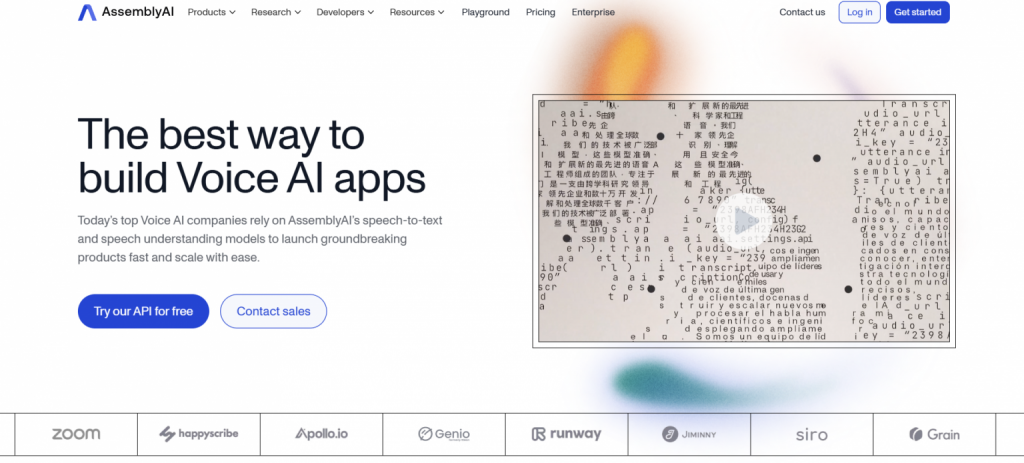
Key Features & Strengths
- Comprehensive AI Models: Its API provides a wealth of information, including summarization, sentiment analysis, topic detection, and PII redaction, all in one go. This is far more integrated than chaining multiple Azure services together.
- LeMUR Framework: This unique feature allows you to use natural language prompts to analyze your audio data, making complex analysis incredibly simple.
OpenAI Whisper
Whisper is famous for its exceptional accuracy across a vast array of audio types. For raw transcription quality on pre-recorded files, it is often the gold standard.
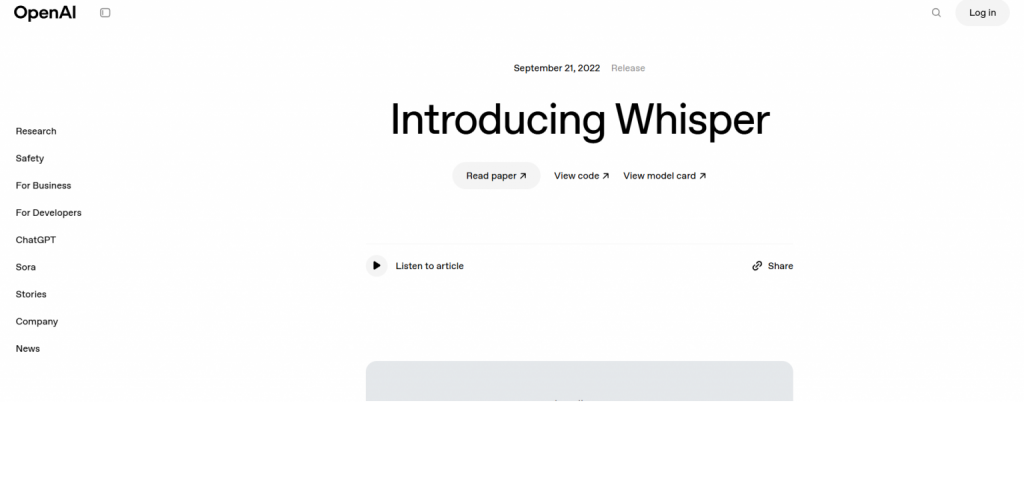
Key Features & Strengths
- Gold-Standard Accuracy: Whisper often provides the lowest Word Error Rate (WER) without any custom training, especially on noisy or diverse audio.
- Flexible Deployment: It’s offered as a simple managed API or as an open-source model that can be self-hosted for maximum data privacy and control.
Google Cloud Speech-to-Text
As Azure’s most direct “big cloud” competitor, Google’s offering is a popular choice for teams pursuing a multi-cloud strategy or those needing a truly global reach.
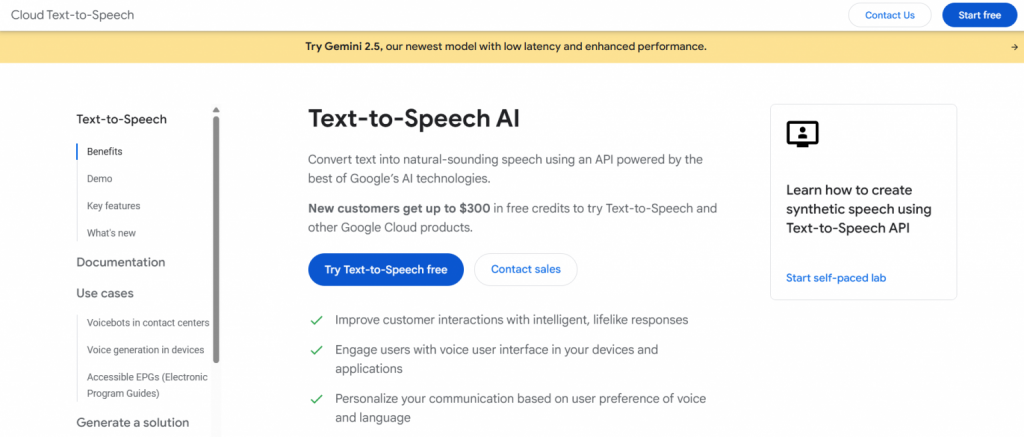
Key Features & Strengths:
- Unmatched Language Support: Google offers the most extensive library of languages and dialects on the market, often outperforming Azure in this area.
- Specialized Telephony Models: Provides models specifically trained on phone call audio, which can offer superior accuracy for that common use case.
Also Read: Elevenlabs.io vs Deepgram.com: Feature by Feature Comparison for AI Voice Agents
ElevenLabs
This is an alternative to the Text-to-Speech part of Azure Speech Services. While Azure’s neural voices are good, ElevenLabs is widely considered the industry leader for creating the most realistic, emotionally rich, and human-like voices.
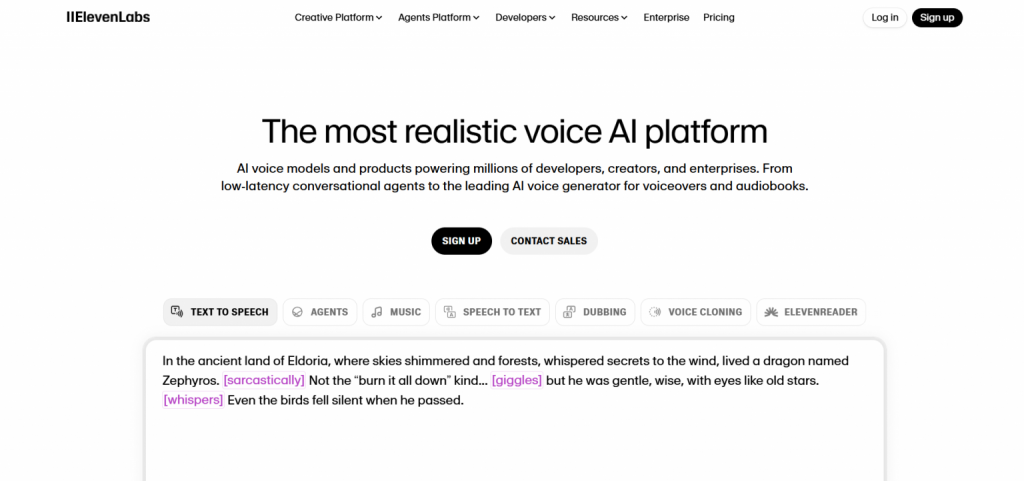
Key Features & Strengths
- Unmatched Vocal Realism: Its voices carry a level of human-like intonation and emotional nuance that is unparalleled.
- High-Fidelity Voice Cloning: Allows you to create a unique, proprietary brand voice by cloning a specific person’s voice with stunning accuracy.
Conclusion
While Azure Speech Services remains a solid, enterprise-grade choice, the landscape of voice AI is now rich with powerful specialists. The best Azure Speech Services alternatives are not just competitors; they are focused platforms that can give you a decisive edge in performance, intelligence, accuracy, or voice quality.
The ultimate winning strategy in 2025 is not about being locked into a single ecosystem. It’s about having the freedom to choose the best tool for every job. By building on a robust, model-agnostic foundation like FreJun AI, you gain the flexibility to combine these best-in-class components into a voice AI experience that is truly exceptional.
Also Read: How Real Estate Agents Thrive Using a Robust business phone system in Bahrain?
Frequently Asked Questions (FAQs)
The most common reason is specialization. If your application’s success depends on a specific metric like ultra-low latency for conversational AI (Deepgram), rich audio analysis (AssemblyAI), or a hyper-realistic voice (ElevenLabs), a specialized provider will often deliver superior performance.
An STT/TTS API is a service that processes audio or text. A voice infrastructure platform is the system that handles the live phone call itself. It manages the complex connection to the global telephone network and then streams that call’s audio in real time to the AI APIs you choose. FreJun AI is the essential bridge between the phone network and your AI.
The best way is to use a “ground truth” dataset of your own audio that has been accurately transcribed by a human. You can then run this audio through each STT API and calculate the Word Error Rate (WER) for each one. This will give you an objective measure of which provider is most accurate for your specific type of audio.
Yes, absolutely. A key advantage of modern, API-first architecture is interoperability. By using FreJun AI as the voice layer, you can easily send the transcript from any STT provider to another Azure service (like Azure AI Language or an Azure Function) for further processing.
